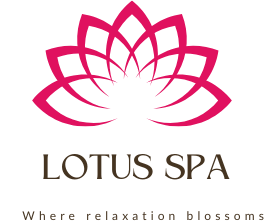Nourish Your Skin: Healthy Eating for Better Skin and Overall Wellness
Achieving radiant, healthy skin goes beyond skincare products—it begins with what you put on your plate. The food you consume plays a crucial role in not only your skin’s appearance but also your overall well-being. Let’s explore how you can harness the power of nutrition to nourish your skin from within and promote holistic health.
1. The Basics of Skin Nutrition
Antioxidant-Rich Foods: Incorporate foods high in antioxidants such as berries (blueberries, strawberries), leafy greens (spinach, kale), and nuts (walnuts, almonds). Antioxidants help combat free radicals, which can contribute to premature aging and skin damage.
Omega-3 Fatty Acids: Found in fatty fish (salmon, mackerel), flaxseeds, and walnuts, omega-3s help maintain skin elasticity, reduce inflammation, and promote a healthy skin barrier.
Vitamins and Minerals: Ensure adequate intake of vitamins A, C, E, and zinc. These nutrients support collagen production, protect against sun damage, and aid in skin repair and regeneration.
Hydration: Drink plenty of water throughout the day to keep your skin hydrated and flush out toxins. Herbal teas and infused water can also contribute to your daily fluid intake.
2. Foods for Healthy Skin
Berries: Packed with antioxidants, vitamins, and fiber, berries help fight oxidative stress and support collagen production for youthful-looking skin.
Leafy Greens: Spinach, kale, and other leafy greens are rich in vitamins A, C, and E, which promote skin repair and protect against sun damage.
Fatty Fish: Salmon, sardines, and trout provide omega-3 fatty acids that help maintain skin moisture and reduce inflammation.
Nuts and Seeds: Walnuts, almonds, and flaxseeds are excellent sources of omega-3s, vitamin E, and zinc, supporting skin health and overall immunity.
Avocado: Loaded with healthy fats and vitamin E, avocado moisturizes the skin from within and supports collagen production.
Sweet Potatoes: High in beta-carotene, sweet potatoes are converted to vitamin A in the body, promoting skin cell turnover and a healthy complexion.
3. Eating Habits for Healthy Skin
Balance and Variety: Incorporate a diverse range of foods to ensure you’re getting a wide array of nutrients essential for skin health.
Limit Sugar and Processed Foods: High-glycemic foods and processed sugars can contribute to inflammation and breakouts. Opt for whole, unprocessed foods whenever possible.
Healthy Fats: Include sources of healthy fats like avocados, olive oil, and nuts to support skin elasticity and hydration.
Protein: Lean sources of protein (chicken, fish, legumes) provide amino acids necessary for collagen synthesis and tissue repair.
4. Lifestyle Tips for Skin Health
Sun Protection: Use sunscreen daily to protect against UV damage, which can accelerate skin aging and increase the risk of skin cancer.
Manage Stress: Chronic stress can exacerbate skin conditions like acne and eczema. Practice relaxation techniques such as meditation or yoga to promote overall well-being.
Quality Sleep: Aim for 7-9 hours of quality sleep each night. During sleep, your body repairs and rejuvenates, including your skin cells.
By adopting a diet rich in antioxidants, omega-3 fatty acids, vitamins, and minerals, you can nourish your skin from the inside out. Coupled with healthy lifestyle habits such as sun protection and stress management, you’ll not only achieve radiant skin but also enhance your overall wellness. Remember, consistency is key—incorporate these dietary changes gradually and observe how your skin responds. Embrace the journey towards healthier eating and glowing skin as part of your holistic approach to self-care and vitality.
#12 Elevate Your Daily Routine: Incorporating Aromatherapy for Mind, Body, and Spirit
Aromatherapy, the art and science of using essential oils extracted from plants to enhance well-being, offers a delightful way to elevate your daily routine. Whether you seek relaxation, energy boost, or mental clarity, integrating aromatherapy into your life can bring a multitude of benefits. Let’s explore how you can harness the power of scent to enhance your overall wellness.
- Understanding Aromatherapy
Essential Oils: Derived from various parts of plants, essential oils are highly concentrated extracts known for their therapeutic properties. Each oil boasts unique benefits, from calming lavender to invigorating peppermint.
Methods of Use: Aromatherapy can be enjoyed through inhalation (diffusers, steam inhalation), topical application (diluted in carrier oils for massage), or even added to bathwater for a luxurious soak.
Safety: Always dilute essential oils before applying to the skin and perform a patch test to check for any allergic reactions. Pregnant women and individuals with certain medical conditions should consult with a healthcare professional before use.
- Incorporating Aromatherapy into Your Day
Morning Energizer:
- Citrus Scents: Start your day with the refreshing aroma of citrus oils like lemon, orange, or grapefruit to awaken your senses and promote mental clarity.
- Diffusion: Add a few drops of your chosen oil to an aromatherapy diffuser in your bedroom or bathroom to infuse the air with an uplifting fragrance.
Midday Stress Relief:
- Lavender: Known for its calming properties, lavender oil can help reduce stress and anxiety. Keep a small bottle of diluted lavender oil at your desk and inhale deeply when feeling overwhelmed.
- Aromatic Jewelry: Wear a diffuser necklace or bracelet to enjoy the benefits of aromatherapy throughout the day.
Evening Relaxation:
- Chamomile or Ylang Ylang: These oils are excellent choices for promoting relaxation and preparing your mind and body for sleep.
- Bedtime Ritual: Create a soothing bedtime routine by adding a few drops of essential oil to a warm bath or applying diluted oil to pulse points before bedtime.
- Targeted Uses for Aromatherapy
Skin Care:
- Tea Tree: Known for its antibacterial properties, tea tree oil can be added to skincare products to help combat acne and soothe skin irritations.
- Rosehip or Jojoba Oil: Use as carrier oils to dilute essential oils for facial massage or moisturizing, benefiting both skin health and aroma.
Work and Study Focus:
- Peppermint or Rosemary: These invigorating oils can enhance concentration and mental alertness. Diffuse them in your workspace or use a rollerball blend for quick application.
- Aromatherapy in Self-Care Practices
Massage and Body Treatments:
- Eucalyptus or Ginger: Add these oils to massage oils or lotions for muscle relaxation and pain relief after a workout or a stressful day.
- DIY Treatments: Create your own sugar scrubs or bath salts with essential oils for a spa-like experience at home.
Mood Enhancement:
- Frankincense or Sandalwood: These oils are prized for their grounding and spiritual properties, making them ideal for meditation or yoga sessions.
- Personalized Blends: Experiment with blending different oils to create custom scents that resonate with your mood or intentions.
Integrating aromatherapy into your daily routine offers a holistic approach to enhancing your physical, emotional, and mental well-being. Whether you’re seeking relaxation, energy, or mental clarity, the power of scent can profoundly impact your mood and overall health. Embrace the versatility of essential oils and discover how they can transform your daily rituals into moments of tranquility and rejuvenation. Embrace the journey of self-care through aromatherapy, and let the natural essences guide you towards a balanced and harmonious lifestyle.












